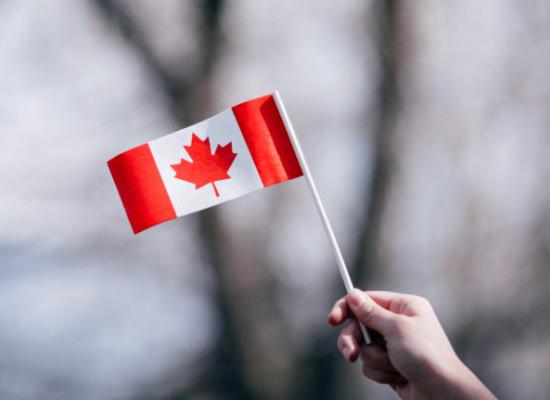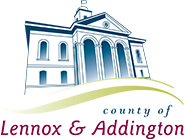
Experiences of Canada
These writers take stock of how we as Canadians see ourselves as well as how the world sees us.
Canada Day is currently the center of conversation for its controversial origins as a colonial symbol. People see it variously as a point of celebration, lamentation, and protestation. It is time to reflect on what it means to be Canadian. How can we remedy present day conflicts rooted in historic and ongoing human rights violations? What would a shared vision of an equitable society look like? These writers take stock of how we see ourselves as well as how the world sees us.
Children’s Books
A Canadian Year: Twelve Months in the Life of Canada’s Kids by Tania McCartney
Discover how a representative group of children express their national pride. This snapshot of a year presents a blend of modern celebrations and traditional events held coast-to-coast from the point-of-view of various Canadian kids.
Loonies and Toonies: A Canadian Number Book by Mike Ulmer & Melanie Rose
Take a deep dive into images and systems associated with Canadian currency through some notable figures and iconic animals literally engraved in national memory. Teachable points range from historic ties to British monarchy to wild capers like Niagara Falls barrel drops.
The Kids Book of Black Canadian History by Rosemary Sadlier & Qi-Jun Wang
Learn about how well before Confederation and long since Black people have shaped Canada. This book shares acclaimed stories and spotlights key events that illustrate how members of our Black community persevere to create a place to call their own.
Cultural Traditions in Canada by Molly Aloian
Canadian citizens embody different cultures, various ethnicities, and several languages. This book provides an overview of holidays and family occasions recognized by various members of Canadian society.
Canadian Railroad Trilogy by Gordon Lightfoot & Ian Wallace
Famous folk singer Gordon Lightfoot’s classic song comes to life in this picture book. Lyrics such as “We have opened up this soil / With our teardrops and our toil” touch on the good and the harm involved in the government railroad project. While it benefited majority politics and industry, it simultaneously dispossessed Indigenous people of their land and exploited the labour of Asian citizens.
Adult Non-Fiction
The Truth About Canada by Mel Hurtig
The creator of The Canadian Encyclopedia shares world statistics on how Canada compares to other countries and falls short across key measures such as health, wages, productivity and more. As Hurtig puts it, “We are no longer the country (or the people) we think we are.”
Seeking the Fabled City: The Canadian Jewish Experience by Allan Levine
Critically acclaimed author Allan Levine chronicles the epic journey undertaken over 250 years ago when small numbers of Jewish peoples entered the country to present day flourishing communities. This comprehensive history shares the collective aspirations and obstacles that Jewish Canadians experienced through changing social tides of antisemitism and growth.
Surviving Canada: Indigenous Peoples Celebrate 150 Years of Betrayal by Kiera Ladner & Myra Tait (eds.)
Primarily Indigenous contributors share powerful reflections on the ongoing fight for recognition. This collection challenges us to awaken from ‘social amnesia’ -- the denial of the shameful legacies of institutionalized racism -- and reveals many forms of repressed histories such as the over-representation of Indigenous peoples in prison, land dispossession, stolen water, language extinction, and more.
Mobilizing Mercy: A History of the Canadian Red Cross by Sarah Glassford
Discover the history of the organization from its origins in battlefield medicine to free blood transfusion during the Cold War, including the influence of key leaders and the impact of social changes. Credited as a ‘ubiquitous’ agency, The Red Cross provides myriad services.
Wherever I Find Myself: Stories by Canadian Immigrant Women by Miriam Matejova (ed.)
This anthology presents portraits of Canadian immigrant women’s experiences navigating a new landscape as informed by their history. Their reflections centre on what home means.
Adult Fiction
Fifty Years of Best Canadian Stories by John Metcalf (ed.)
Editor John Metcalf highlights many well-known Canadian writers in celebration of a half century of the country’s best short fiction.
Medicine Walk by Richard Wagamese
Ojibwe author and journalist from the Wabaseemoong Independent Nations in what is now known as northwestern Ontario writes about coming to terms with a strained parent/child relationship as an adult when a son is called to help his father near his death.
The Lost Diaries of Susanna Moodie by Cecily Ross
An iconic settler story about the struggles involved in moving from a genteel life to the rugged wilderness. This novel offers an imagined version of Susanna which integrates intersecting aspects of her identity and brings her story to life in a diary format.
Lullabies for Little Criminals by Heather O’Neill
A heartbreaking coming-of-age story about a thirteen-year old heroine who survives mean streets. This award-winning tragicomedy is a compelling read about living on the margins of society. It offers awareness on adverse childhood experiences and managing trauma.
Any Known Blood by Lawrence Hill
This generational novel follows an African-Canadian-American family in a compelling story that slips effortlessly from the slave trade of 19th century Virginia to the modern suburbs of Oakville, Ontario. It represents one man’s attempt to find himself through giving voice to those who came before him.
Learn more about the conversation around the need for reflection on Canada Day here, here and here.
